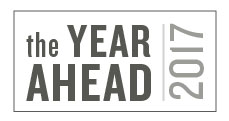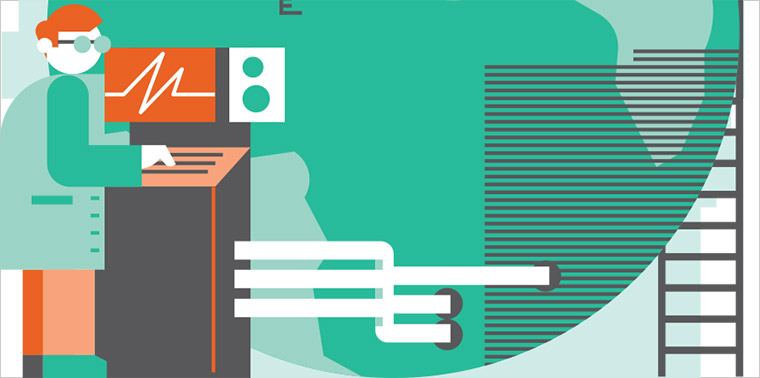December 27, 2016 —  When you look to the year ahead, what do you see? Ensia recently invited eight global thought leaders to share their thoughts. In this interview with Ensia contributor Lisa Palmer for the 2017 Ensia print annual, IT Technology Review editor in chief and publisher Jason Pontin responds to three questions: What will be the biggest challenge to address or opportunity to grasp in your field in 2017? Why? And what should we be doing about it now?
When you look to the year ahead, what do you see? Ensia recently invited eight global thought leaders to share their thoughts. In this interview with Ensia contributor Lisa Palmer for the 2017 Ensia print annual, IT Technology Review editor in chief and publisher Jason Pontin responds to three questions: What will be the biggest challenge to address or opportunity to grasp in your field in 2017? Why? And what should we be doing about it now?
The challenge in 2017 existed in 1989: the civilizational challenge of climate change. Technology created the problem, and technology plausibly offers ways to ameliorate and manage it. But we have to want to solve the problem. Great civilizational challenge of that scale requires government, academia, business and ordinary people to want to solve it, and I don’t think as a species we are there yet.
There will be 9.6 billion people alive on the planet in 2050 — that’s 2 billion more on a world roiled by climate change; and we have no idea how to provide them with sufficient, sustainably clean energy, food and water. We have no idea how to build livable cities for that 9.6 billion. We have no idea how to offer them real, meaningful economic opportunities and some form of self-expression in what they do. Men and women of good conscience should be thinking of nothing less.
Meanwhile, two interesting technologies seem to have dropped out of the future before we are fully ready for them, politically, socially or economically. The first is CRISPR-Cas9 and the ability to edit individual nucleotides. It plausibly offers the opportunity to create new kinds of cultivars for agriculture, develop new therapeutics and make direct genetic interventions on human genome. The second is the disruption by deep learning and machine learning on a whole variety of jobs, such as medical doctors and lawyers.
I think all these things are manageable, because I am an optimist and a technologist. The first step is to admit you have a problem. And the second step for modern society is to say we are all in this together. It is the first time the human race, if it is to solve these problems, which technology has created, is going to have to think as a family, using technology rather than be used by it. ![]()
Editor’s note: The views expressed here are those of the author and not necessarily of Ensia. We present them to further discussion around important topics. We encourage you to respond with a comment below, following our commenting guidelines, which can be found here. In addition, you might consider submitting a Voices piece of your own. See Ensia’s “Contact” page for submission guidelines.
Ensia shares solutions-focused stories free of charge through our online magazine and partner media. That means audiences around the world have ready access to stories that can — and do — help them shape a better future. If you value our work, please show your support today.
Yes, I'll support Ensia!


energy = solar thermal with thermal storage
http://www.green-energy-rs.com/img/green-energy-brochure-1016.pdf
can be built anywhere using average skills
water = heat remaining from thermal generation is enough for distillation
food = containerized aquaponics
training = VR interactive
health = containerized cloud connected
funding = co-op based by the project
We can start tomorrow - a few containers, innovation, cooperation
Are we to believe the "solutions" offered here are even viable? Who decides? Are you suggesting that there are no possible downsides to any of these ideas? If then this is little more than PR.
No thanks - this is hardly the perspective or vision we need going forward.